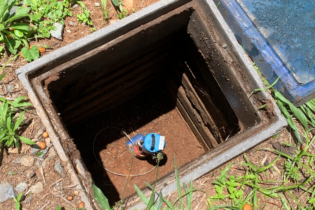Q. In the local water industry we have produced many unique solutions to meet rural and urban water delivery challenges. As a company, what are some of the challenges you have faced and the solutions you have found in response to these challenges?
A. Africa is a challenging environment on its own and in our 36 years of experience– and manufacturing for the last 29 years – we have had the privilege and opportunity to supply this basic, yet soon to be exhausted resource to many rural areas that have been without water. Due to population growth and the demand for safe drinking water, water storage is critical. Even in the 21st century, there are still rural areas without running water, where no provision has been made and locals have to commute kilometres to the nearest supply. The more developed urban areas are continuously experiencing water cuts, whether it is due to water line upgrades or repairs. Our biggest challenge is to appeal to municipalities and work together in supplying fresh water to these rural areas to fulfil their needs in the shortest time period by supplying them an Abeco Tank that will last for years to come. Our tanks are therefore very rugged, easily transported and installed using basic equipment and manual labour. This method is very effective where the site access is limited, but the need for water storage is critical. Q. What is your take on the shortage of water resources in our country and what, in your opinion, are some of the effective distribution solutions needed thereof?A. Across Africa more than 300 million people are said not to have access to safe drinking water, with freshwater rivers and lakes becoming subject to seasonal floods, droughts and pollution that will soon limit their availability for people and for agriculture. I believe that water storage is the best way to go; more reservoirs will have to be built to make provision for the future. Water running underground can also be stored, by making use of boreholes and pumps to make this water accessible. We have seen sectors, like agriculture, housing and educational, making use of rainwater tanks, which has proven to be very effective. Across Africa water is not freely available and is only supplied on a weekly basis, provision has to be made to cater for the days that water is not delivered.
Q. In terms of water resources management, water treatment, water laboratories, water storage and water distribution, how do your products and/or services benefit the water management sector, in terms of some or all the above topics? A. Abeco’s pressed steel tanks can store large volumes of water from as little as 1 800 ℓ to as large as 5 000 000 ℓ. Our elevated structures start from 1 to 40 m in height. We are the largest tank manufacturers in Africa and have supplied tanks from Cape to Cairo, from Kenya to Mauritania as well as overseas as far as Central America. Due to the modular design, space is not a challenge and the options are limitless. Our tanks offer safe and hygienic water storage that is unaffected by ultraviolet or light penetration, a rugged and simple design that is transportable to remote locations, and is quick and easy to install. We offer a reduced project lead time from initialisation to completion. Due to the tower elevations that can be manufactured, the water stored in the tanks can reach vast communities scattered all over, because of the pressure obtained. Storage and water distribution can be made available to endless users, such as local municipalities, public buildings, office blocks, shopping centres, hospitals, universities, mining and agriculture. Storage tanks can be made to supply users either by the amount of water required per day or over a few days, to make provision for water cuts or lack of water supply to a specific area. Developed urban regions like Sandton and Rosebank where water cuts are anticipated, are already making provision by installing storage tanks, whereas new buildings under construction have storage tanks as a requirement.





